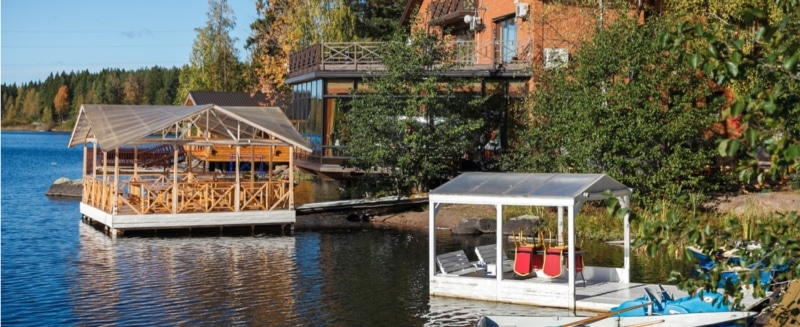Thinking of buying a vacation rental home? Does it make financial sense for your family to use the home, or to use it as an investment?
Q: I am trying to figure out if the numbers would make sense for my wife and me to buy a vacation rental house near our home in Atlanta. There are lots of articles out there with various bits of advice on purchasing a vacation rental, but I was wondering if you could recommend a thorough guide I could use to help figure out all (or most) of the issues I should be mindful of when making a decision.
A: You’re asking quite a bit of information there and we probably would have more questions than answers for you. If you are planning to buy the home for your own use and not as an investment, you have a completely different set of considerations than if you were to just buy it and never use it.
If you are planning to use the property extensively, you probably want the vacation home to be within 2 hours of your home. We’ve written in the past on how most happy second homeowners are those that can get to and from their vacation homes in two hours’ time. Then the issue is whether you can afford that vacation home while assessing all of the costs involved in owning, caring, maintaining and keeping that home.
If you plan to buy a vacation home for investment purposes, you still have quite a number of considerations to keep in mind. If you use the home more than 14 days per year or it’s not rented that much, the home will be considered a second home and not an investment rental.
You should consider the federal income tax consequences in your decision to own a vacation rental as well. An investment vacation rental property may affect your federal income taxes. Owning a vacation rental home that is rented all the time, will give you income to report to the IRS but you’ll also have deductions from the expenses of owning the home, including real estate taxes, homeowner dues and management fees.
How you deal with your particular tax situation could be complicated. You may want to talk to an accountant or learn more about how the vacation rental may affect your federal income taxes.
Then there are the many issues that go along with becoming a landlord or investment property owner. If you rent out the vacation rental for months at a time, you only have to deal with that one renter and then find another.
However, if you choose a vacation rental where you will see dozens and dozens of people staying at the home during the year, you will need to have reliable people helping you out and manage such tasks as meeting your short-term guests at the property and showing them around, to inspecting the home each time your guests leave, to written agreements, damage deposits, receiving payments, refunding deposits, fielding calls, maintaining the property, replacing the linens, and the many other items that you will need taken care of.
Frequently, you find vacation rentals that are part of a pool of rental properties in large developments. In many cases, the owners only receive a fraction of the amount of the rental and the management company keeps the rest. The management company takes care of many of the maintenance issues surrounding the home, but you will still want to make sure that your property stays in good shape.
Years ago, we knew a couple that owned a property in the mountains of New England. They had successfully rented their townhome for quite a number of years using a management company. However, one year they went to visit their property to find that all of the artwork in the rental unit had been stolen. They didn’t know when the theft occurred and dozens of people had stayed in the rental since their prior visit. The management company declined responsibility and they had to rely on whatever they got from their insurance company.
The reality is that you must be vigilant when owning a vacation rental. You will need to go over the numbers with your estimates of how many days per year you expect the home to be rented and what your expectation will be of the costs involved. If you use a management company, you need to consider those costs as well.
After you run the numbers, you can then decide if the vacation rental property will be a good investment for you when you compare it to your other investment choices, factoring into your decision making process the time you will have to spend taking care of the many issues involved in owning a vacation rental.
Ilyce has recently recorded a webinar series called “The Intentional Investor: How to Be Wildly Successful in Real Estate” that might provide helpful information about owning and maintaining investment real estate.
The essence of your decision has to be whether it makes financial sense for you to own a vacation home that you and your family will own and use and whether it makes financial sense to own a vacation rental for investment purposes. If you answer those questions and you like the answers you find, you can then move forward and buy a property.
One last issue: If you buy a vacation rental, you should assume that you might want to sell it some years down the line. If that’s the plan, you’ll want to buy in a location that is stable and growing, where sales occur frequently and where you feel that in the future you won’t have difficulty selling it if and when you need to sell.







Leave A Comment